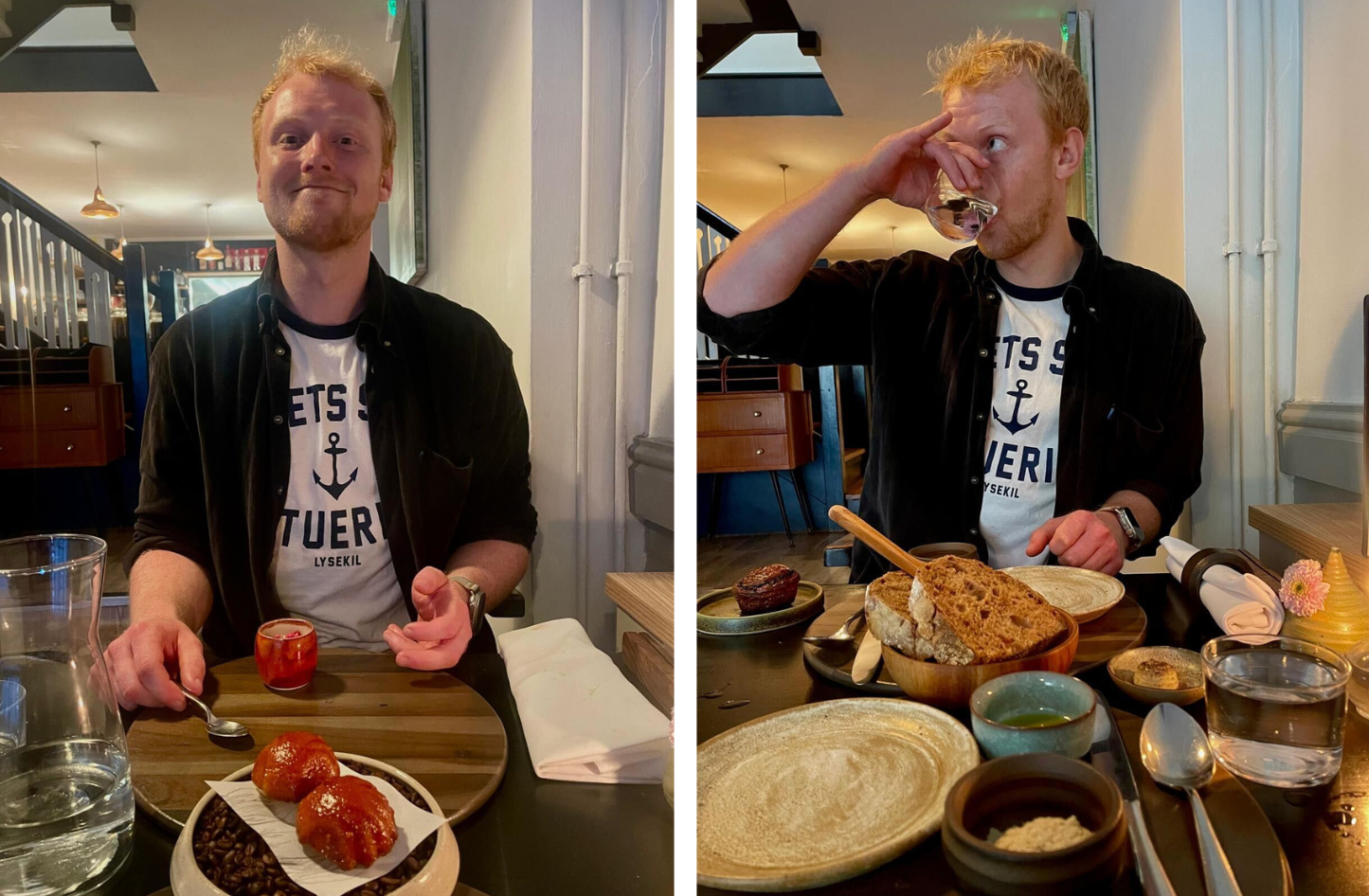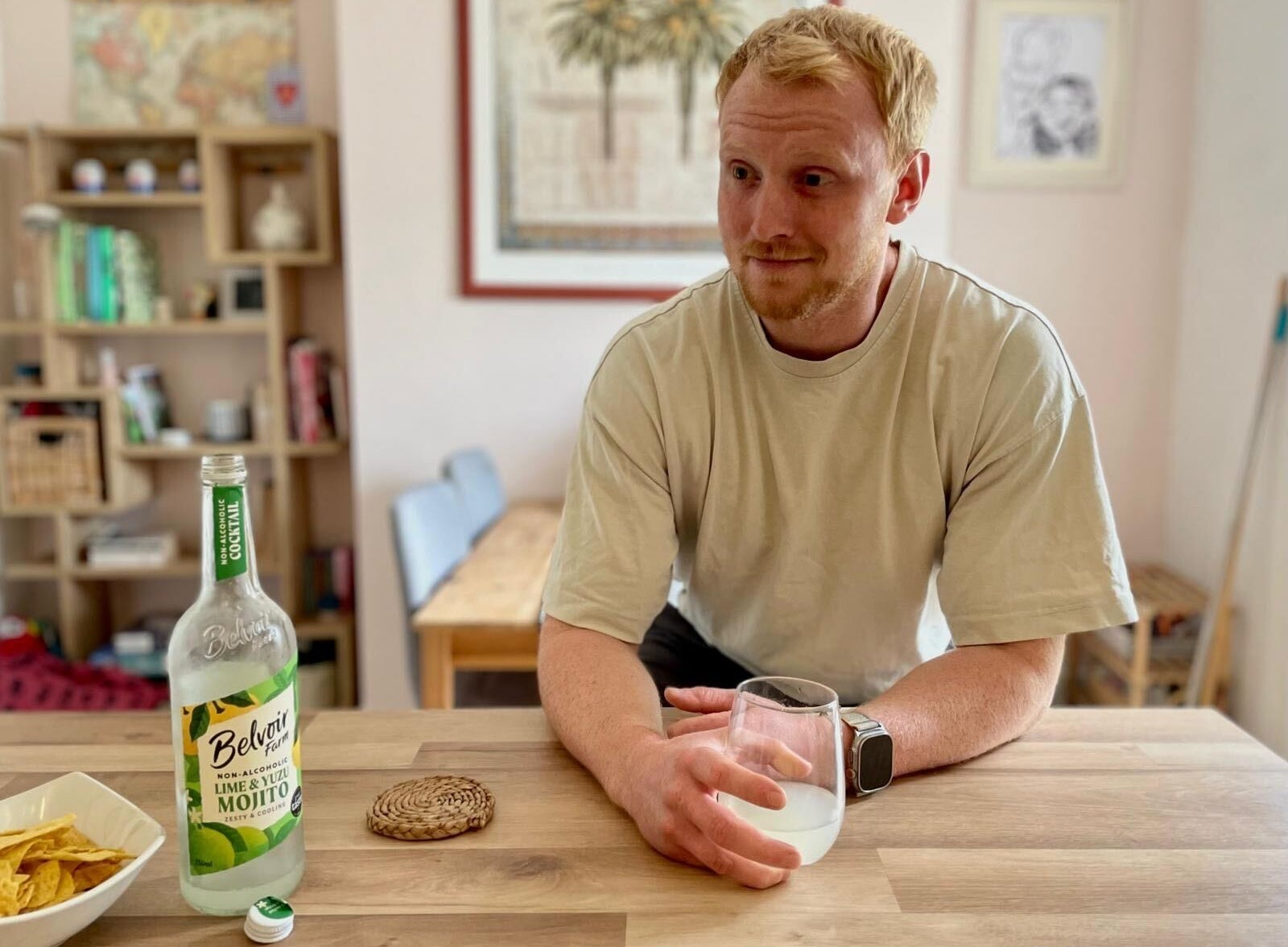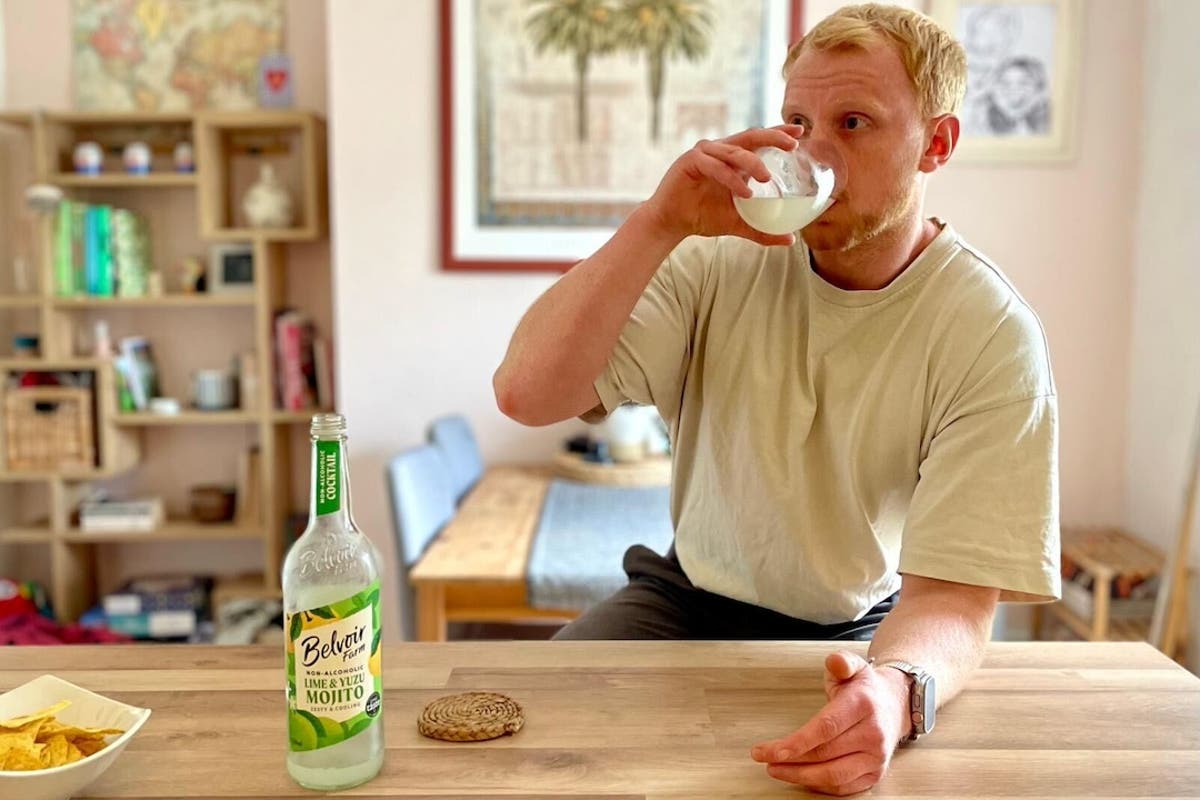I started drinking at 16, and it was fun. As a painfully shy teen who had just moved to a new town, it made me the person I wanted to be; confident and outgoing. At parties, alcohol helped me fit in and find friends while making some lasting (and some not-so-lasting) memories.
I continued to use booze as a social lubricant into my twenties. But as the years went on, the magic wore off. I found happiness harder to come by in the days after a heavier session, the hangovers became unbearable and my post-night-out anxiety skyrocketed. So I decided to quit drinking for a month, curious to see what a dry spell could do for me.
My one-month stint turned into two after I noticed a slew of positive changes. My productivity boomed, my mood was consistently higher and my confidence took an unexpected turn for the better. I also developed a Lionel Richie level of appreciation for Sunday mornings (some of which were previously spent recovering). Before I knew it, I’d gone six months without a drop, and it was one of the best things I’ve ever done.
Why did I want to stop drinking?
During sixth form and my time at university, the amount you could drink was worn as a badge of honour. As a competitive person, I never wanted to be left behind, so binge drinking once or twice per week was the norm.
This was further fuelled by the fact that I felt many people, particularly those I didn’t know so well, preferred me when I’d had a few drinks – I was more relaxed, extroverted even, and had the confidence to entertain a crowd. For this reason, I tended to lean on alcohol as a way of making myself seem more appealing during certain social settings.
But I would only ever drink socially so when the first Covid lockdown hit in 2020 my relationship with alcohol went out the window. It was at this point I started to notice how much better I felt without it.
When Brits were allowed to return to pubs and nightclubs again, I celebrated in the same way the rest of the UK: with a few drinks. But the following days felt awful, and not just because of an aggressive hangover.
I’m generally quite chirpy, but my mood went through the floor and raising a smile felt like a Herculean effort. My consequent lie-ins and naps made the next few days seem incredibly short, and in the time I was awake I got depressingly little done.
It was a while until I touched alcohol again after this, and when I did the cycle repeated itself, leading me to trim down the amount of times I drank over the next few years. By New Year’s Day 2024, I was ready to try an entirely dry spell – here are five things I noticed when I stopped drinking.
My confidence increased
Everyone knows alcohol isn’t good for you. When you bring it up with friends, one person will inevitably claim red wine is good for your heart (something the World Heart Federation refutes), but for the most part, it’s accepted that drinking is damaging to your health. Yet most of us do it.
“I think the question you have to ask is why people still drink,” says Professor David Nutt, a leading neuropsychopharmacologist specialising in drugs that affect the brain, and one of the experts behind alcohol-alternative Sentia. “The answer is because alcohol is still the best drug or drink we have to relax you.”
“I like to say that humans are social creatures, but they’re not very good at it – that’s the problem. Alcohol makes you better. Small amounts of alcohol make humans what they want to be.” explains Nutt.
This is exactly why I began drinking: to feel more confident. Ironically, it ended up having the opposite effect. By thinking I needed alcohol to socialise successfully, I was only reinforcing the internal narrative that my sober self wasn’t up to scratch.
But during my break from alcohol, I’ve navigated festivals, nightclubs, work drinks and rooms full of new people with just a lime and soda in hand, and it’s been strangely empowering. Meeting new people and building lasting relationships without any liquid courage wasn’t just fun and rewarding, it also validated the fact that drink-free me has plenty to offer. For someone who’s historically struggled with self-confidence, this gave me a huge boost.

My mood improved
My biggest motivation for cutting out alcohol was the impact this had on my mood. As I grew a bit older, the days after drinking started to feel unfamiliarly grey, and I hated how sluggish I felt.
“When you get a cold, it drags you down a bit, and when people had Covid a lot of them had severe depression and anxiety – that’s through inflammation. Alcohol produces the same kind of inflammation in the brain,” Professor Nutt tells me. He should know, having quite literally written the book on it (Drink? The New Science of Alcohol and Your Health, (£15.40, Amazon.co.uk)).
“The hangover is partly due to neuroadaptation – the brain adapting to try and offset the effects of alcohol – and partly through the toxicity of alcohol leading to inflammation. That inflammation, as you’ve experienced, leads to a sense of lowness, flatness, irritability and not enjoying life. This can be mistaken for depression.”
Without any weekend drinking sessions in my schedule, I noticed this impact subsided after a couple of weeks, which is par for the course according to Professor Nutt.
“Part of the problem is that, if you drink a lot, your brain shrinks a bit because you get dehydrated, and that is not a good thing. Like the rest of your body, you need your brain properly hydrated for optimal functioning,” he explains.
“That dehydration effect recovers over the period of a few weeks. Neurotoxicity is a trickier one. If it’s just due to the alcohol inflammation and poisoning, without loss of cells, then that should recover, and that’s probably reflected in your observations that your mood recovered over a period of a number of weeks.”
People will question your decision
If you say you’re trying to eat less chocolate or exercise more to improve your health, people generally accept it. I’ve found this isn’t the case with alcohol. People want a reason why you’re not drinking and, if it’s not strong enough, many of them will try to persuade you to “just have one or two”.
“It’s more of the done thing, to drink than to not drink, but I think that’s changing and people are becoming more accepting of people not drinking,” says Emily Syphas, founder of drink-free community Sober and Social. “When I was drinking, I didn’t want to be the person that was drinking alone or not participating socially, so I’d want people to do it with me,” she says.
I’ve chatted casually with friends about the reason behind my decision, and they’ve been nothing but lovely and supportive. But in new environments where drinking is the norm, I try to keep the fact I’m not drinking under wraps by ordering a Diet Coke or alcohol-free beer on the sly. From my experience, people don’t ask questions when you’re holding a drink, and I don’t want swerving alcohol to be my defining character trait when meeting new people.
Not drinking doesn’t mean giving up other activities you enjoy
The idea of giving up alcohol felt weird at first because it plays a big part in some of my best memories: festivals, university parties, nights at the pub with friends, the list goes on. But since spending time without it, my desire to drink has nigh-on disappeared.
“You’re breaking a habit, and craving is a habit,” Professor Nutt says. “Anyone who has drunk regularly will know what it’s like. I remember this vividly when I was doing my PhD, and it was very regimented – you worked, and on Friday at 4pm you went to the pub.”
“By lunchtime, you were beginning to taste what you were going to drink. It became a condition for me, and it was fun. You’re all relaxed and chilled, you’d share stories, and it was a very positive experience. But it was definitely a conditioned craving.” explains Nutt.
While I didn’t miss drinking, I did miss pubs, music and having a bit of a dance, so I tried these activities sans alcohol. I’m not going to pretend it was exactly the same. At first, I felt a little out of place, and my moves were far less flamboyant than before, but after a while, I settled into things and enjoyed myself.
Admittedly, I tend to leave these activities and go home a little earlier than I would have done previously. But I still have a good time, and the occasional early exit feels like a small price to pay for feeling fresh the next day.

I’ve been able to enjoy a healthier routine
There are two main ways ditching alcohol has benefitted my health. Firstly, my training has improved.
I’ve always loved exercise, playing any sport I could and lifting weights since I was a teen. As a result, I’ve never had a problem with exercising consistently. But since cutting out alcohol I’ve found the quality of my sessions has improved, helping me make considerable progress in developing my strength and performance.
Secondly, and perhaps more obviously, not drinking alcohol can help with avoiding its harmful effects.
“If alcohol was invented today, as a food additive or something you put into your trifle at Christmas, the recommended annual consumption would be about a glass of wine per year,” says Professor Nutt. “The criterion [for this] is cancer. If you want to avoid any incremental risk of cancer from alcohol then you don’t drink alcohol. But we choose to ignore the harms of alcohol because most of us drink and enjoy it.”
Professor Nutt adds that bingeing, which he defines as consuming five or more units (as little as two pints, according to the NHS) in one sitting, can elevate certain negative effects.
“Firstly, acute intoxication and withdrawal has a negative impact on the brain. There are studies showing that binge drinkers have slightly lower cognitive function, quality of intellectual analysis and memory than non-bingers, even from drinking the same amount of alcohol.”
These studies were conducted on students, he adds, suggesting that the harmful impacts listed don’t take long to come into effect.
“The second thing is, when you’re really drunk, you put yourself at risk of other harms like falling over and getting beaten up, or doing stupid things like driving a car when you know you shouldn’t and crashing it. You get the cumulative harms of intoxication, which are very significant, so not being blind drunk is a good way of minimising harm,” explains Nutt.
Will I go back to drinking alcohol?
I was impressed by the benefits I experienced when I gave up alcohol. So impressed, in fact, that I’ve written this fairly lengthy feature about it. But this is just my experience.
“Everyone’s on a very different journey and we all have very complex relationships with alcohol,” says Syphas. “But I don’t think that looking at your relationship with alcohol will ever take anything away. You can always gain something, just give it a go.”
This doesn’t have to mean cutting alcohol out entirely either – “I drink, so it [the impact of alcohol] doesn’t worry me enough to stop,” Professor Nutt says.
“The current guidelines are 14 units per week. If you can stick within those, the harms of alcohol are relatively minor. Most people who stick within their limits will not experience significant harm,” he adds.
“The advice we give is, if you do drink, always have at least two days a week where you don’t drink at all because that allows your liver and heart and blood vessels to recover. And don’t stockpile. If you’re going to try and stick to the 14 units, don’t take them in one go because that’s going to be more deleterious to your brain.”
Personally, after six months without alcohol, I decided to try it again in the most cliché of ways: while attending Glastonbury Festival. It was fun, I had a dance, I had a laugh with friends, and the next day I felt a bit ropey – all as expected.
But these are all things I can now enjoy sober. By cutting down on drink I’ve grown more confident and comfortable in who I am, and I now prefer the sober version of myself – a state of affairs 16-year-old me would scarcely believe.
For that reason, I haven’t drunk since, and while I wouldn’t rule out a few glasses at a wedding or major event here and there, I don’t see alcohol becoming a regular fixture in my life for the foreseeable future.
Read more: A walking expert says you don’t need to walk 10,000 steps a day for most health benefits – here’s why


